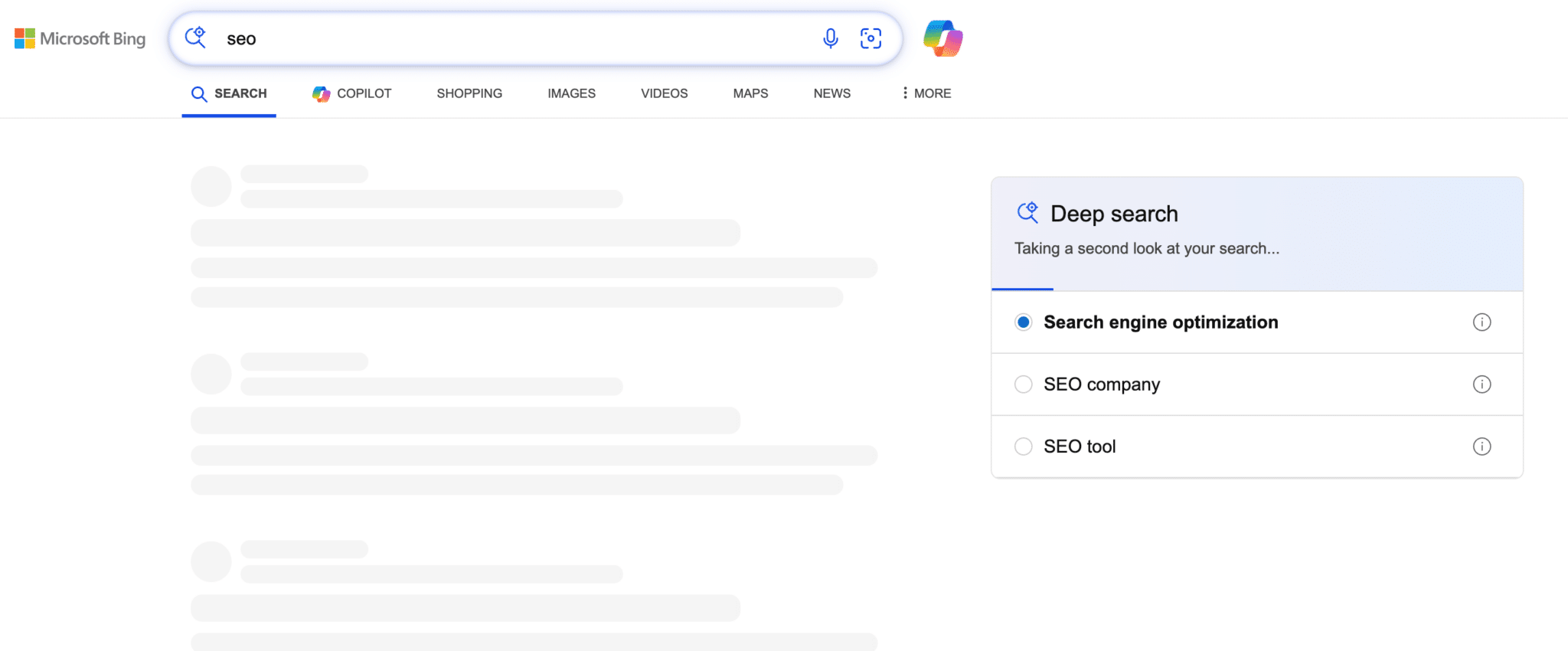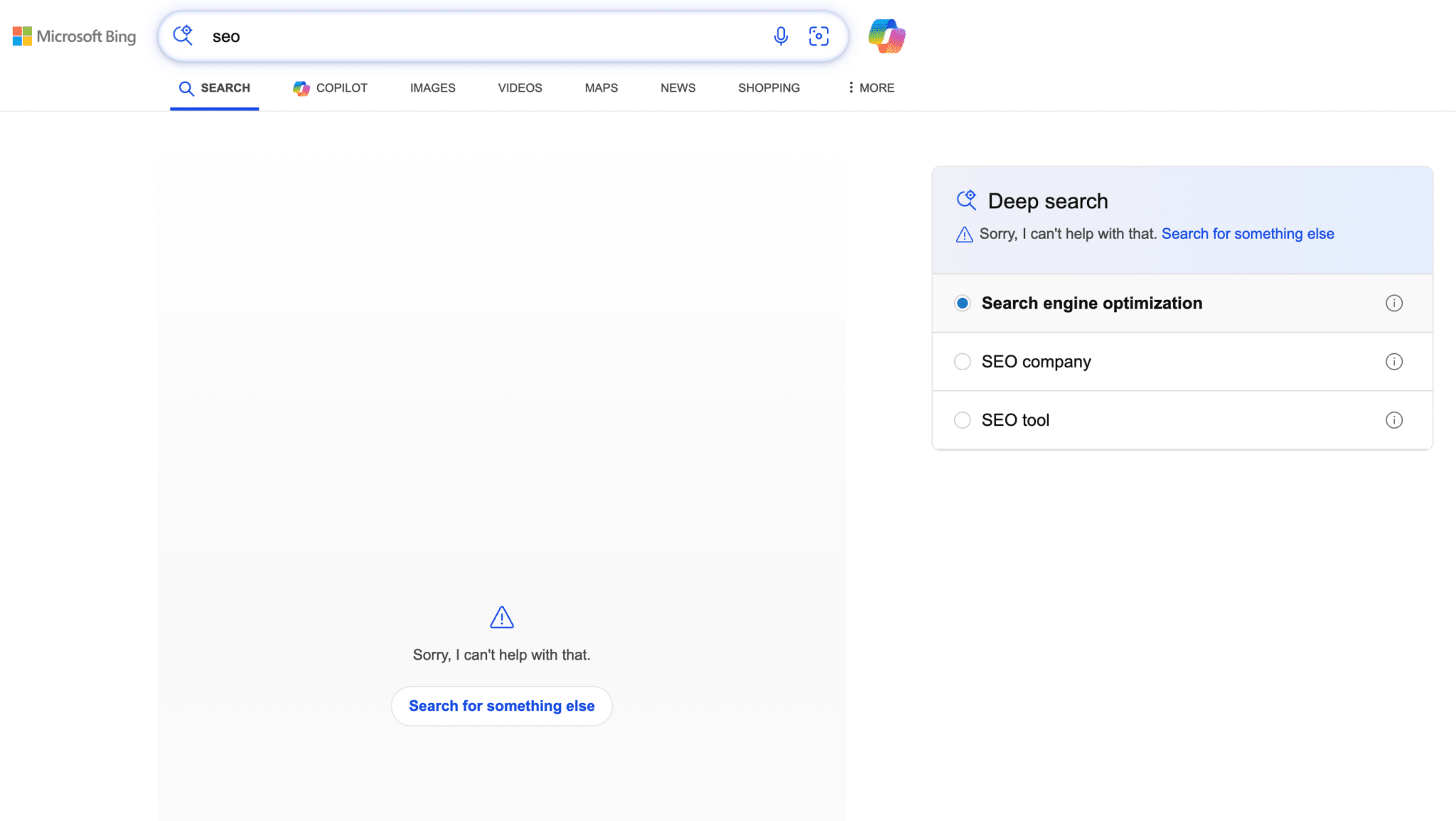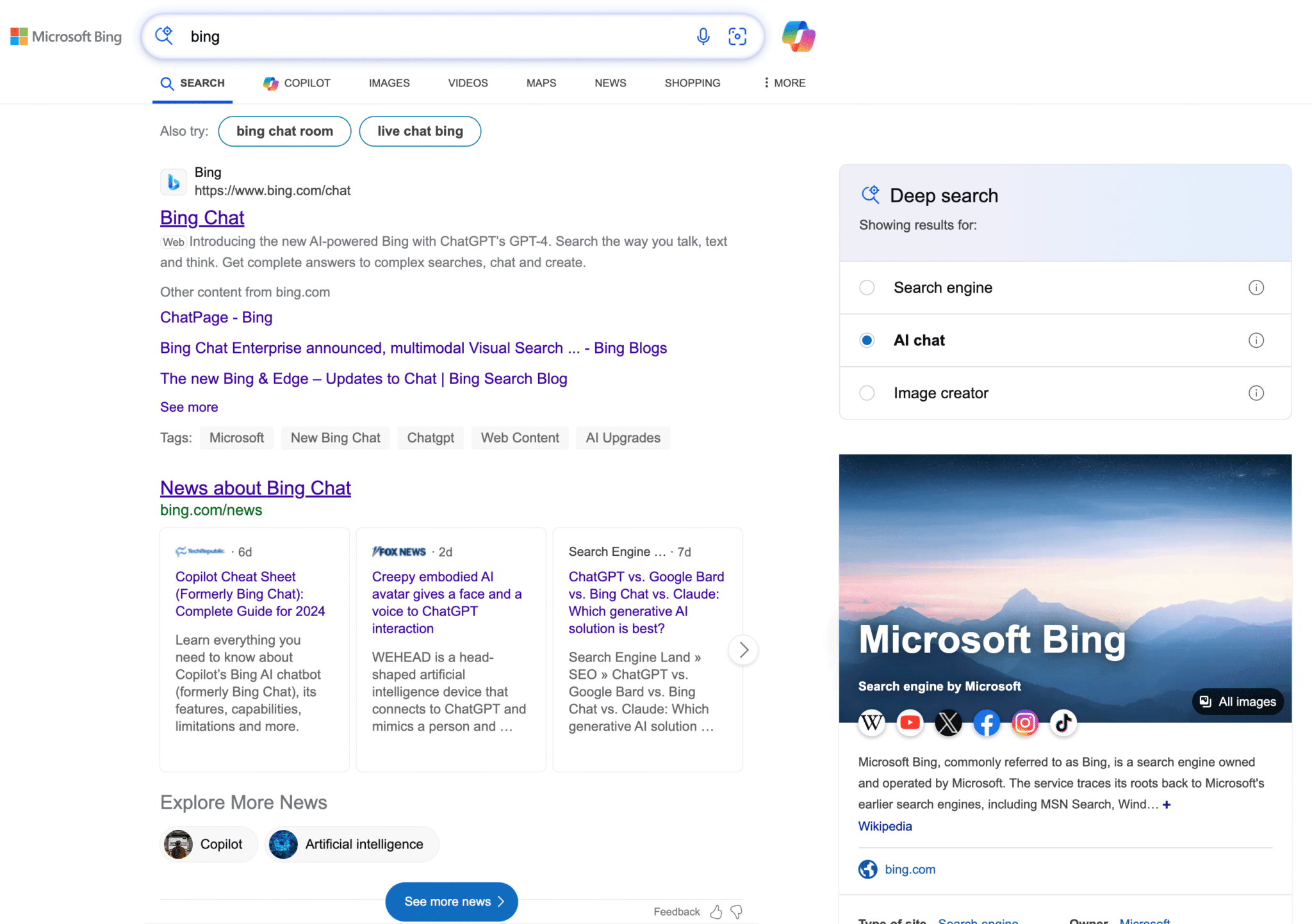Bing Deep Search is rolling out to more users
Microsoft’s Deep Search, an optional generative AI feature meant to help searchers with complex questions that don’t have simple answers, seems to have rolled out to more users today. I personally can see the “Deep Search” icon at the top right of the Bing search box after conducting a search in Bing. And I asked others and they can see it too.
What it looks like. Here is a screenshot of the “Deep Search” icon at the top right of the Bing search results page:
When you click it, it takes you to a screen to refine your search and says “Taking a second look at your search…” and then it does a number of related searches to come up with the search results.

For the [search engine optimization] query, Bing Deep Search is unable to return any results.

But for a search on SEO company, it can:

Here is an example of a search for [Bing] that asks me if I want the [AI chat] version:

Live for all? Mikhail Parakhin from Microsoft made it sound like it is not fully live yet, but everyone I asked can see it:
We are testing it everywhere, the plan is to release everywhere, too.
— Mikhail Parakhin (@MParakhin) February 2, 2024How it works. Deep Search is built on top of Bing’s web index and ranking system. It then uses GPT-4 to discern all the possible intents and variations behind the query and compute descriptions for each of them to create an “ideal set of results.”
After using a combination of querying techniques, Deep Search will surface results that typically wouldn’t appear in Search results.
Deep Search results ranking. The biggest factor is how well a page matches Bing’s expanded description. A few other relevance and quality factors mentioned were:
- How well the topic matches.
- Whether it has an “appropriate level of detail.”
- Whether the source is credible and trustworthy.
- Freshness.
- How popular the page is.
It is slow, very slow. Deep Search won’t load as quickly as regular search results. It may take Deep Search up to 30 seconds to complete, Microsoft said. This makes the feature sound dead on arrival – as most searchers likely won’t have that much patience.
In my tests, I did a search, put the window in the background and came back later to see the results. It is way too slow.
Why we care. This is another variation of using AI for search results. These search results seem like they would drive more clicks than Bing Chat or Google Bard and even Google SGE. But time will tell.
But being that it is so slow to generate any search results, it might be a deal breaker for most searchers.
